Titleist GT3 Driver Review
We take a deep dive into the performance of the new Titleist GT3 driver having given it a thorough test
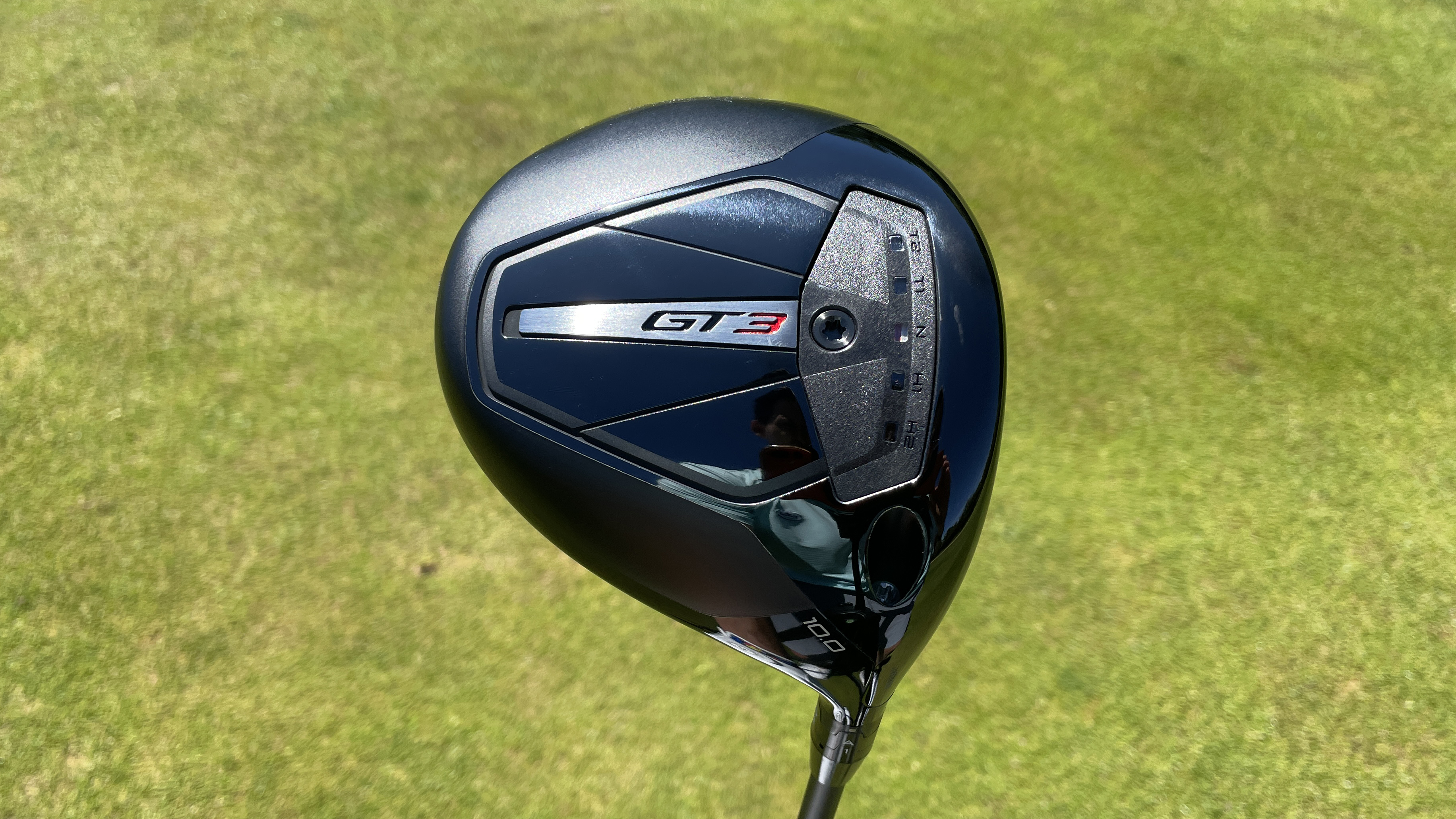
The GT3 is an extremely impressive offering. Sitting in the middle of the range in terms of spin and forgiveness, and offering the most adjustability, this will be a popular choice. Tangible improvements in sound, feel, and forgiveness will have many Titleist enthusiasts excited, and rightly so.
-
+
Exceptional acoustics and impact feel
-
+
Impressively high ball speeds across the face
-
+
High levels of adjustability
-
-
Compact, pear-shaped profile may not suit all tastes
Why you can trust Golf Monthly

When Titleist releases a new driver family, people sit up and take note. Following on from impressive lines such as TSi and TSR, we are now being introduced to the GT family. Looking to sit amongst the best drivers in the game, in this review, I take the GT3 model for a thorough test…
WATCH: See what gains we experienced in our Titleist GT driver fitting
Sometimes new driver releases can be somewhat anti-climactic with only minute technical changes, I am happy to report that isn’t the case with the GT range. Titleist's main goal was to make the GT range faster than the previous TSR family and felt that the only way to do it was by shifting away from all-titanium construction. This led Titleist to the development of a material completely new to golf club design that Titleist refers to as a Proprietary Matrix Polymer to be used in the crown section.
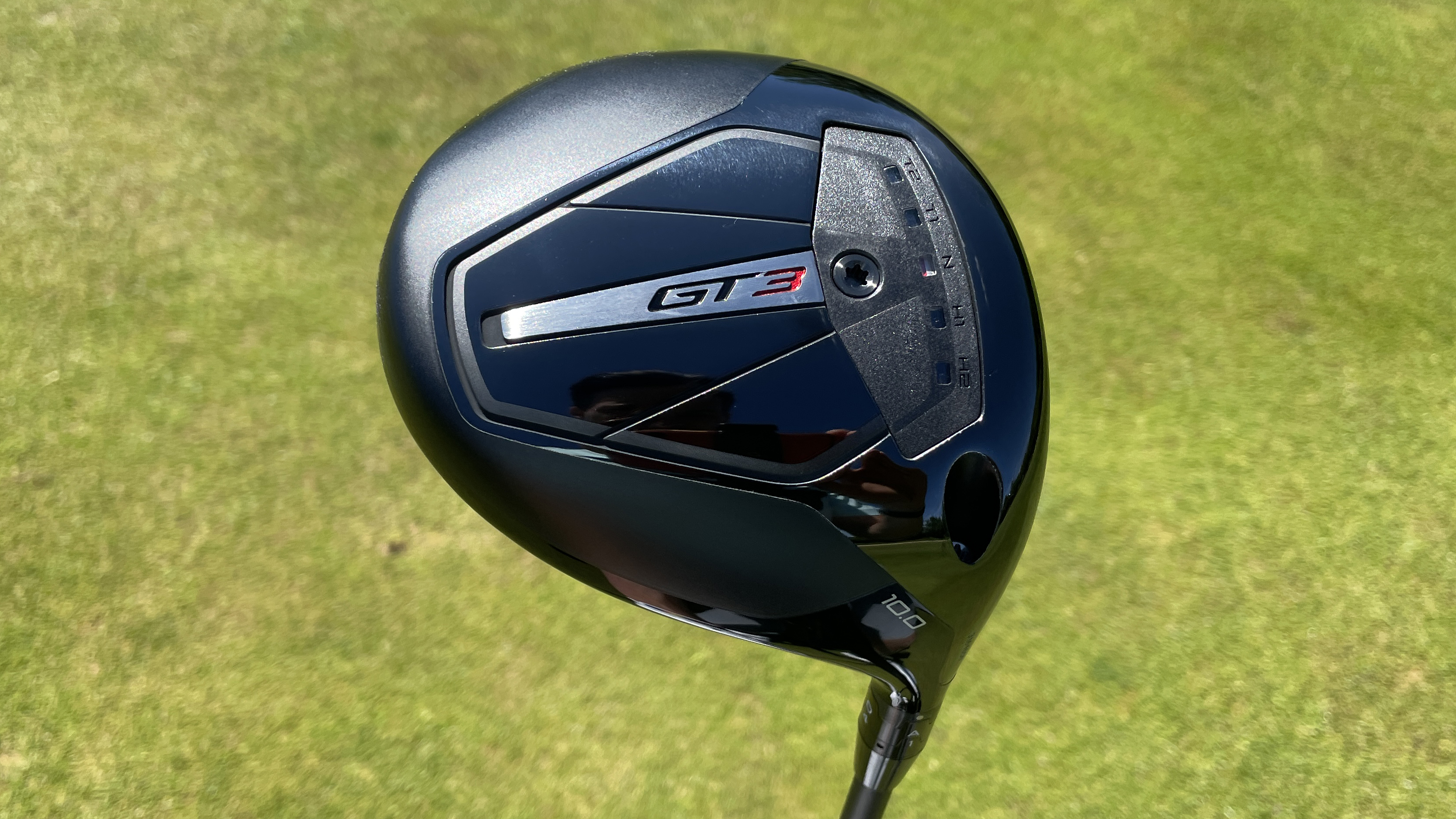
The sole of the GT3 model
Stephanie Luttrell, Director of Metalwood Product Development explains: “The density of this crown is approximately three times lighter than where we were in an all-titanium construction. By wrapping the crown down to the sole, we optimize the mass distribution throughout the head, allowing us significant advantages in designing to our center of gravity and inertia goals.”
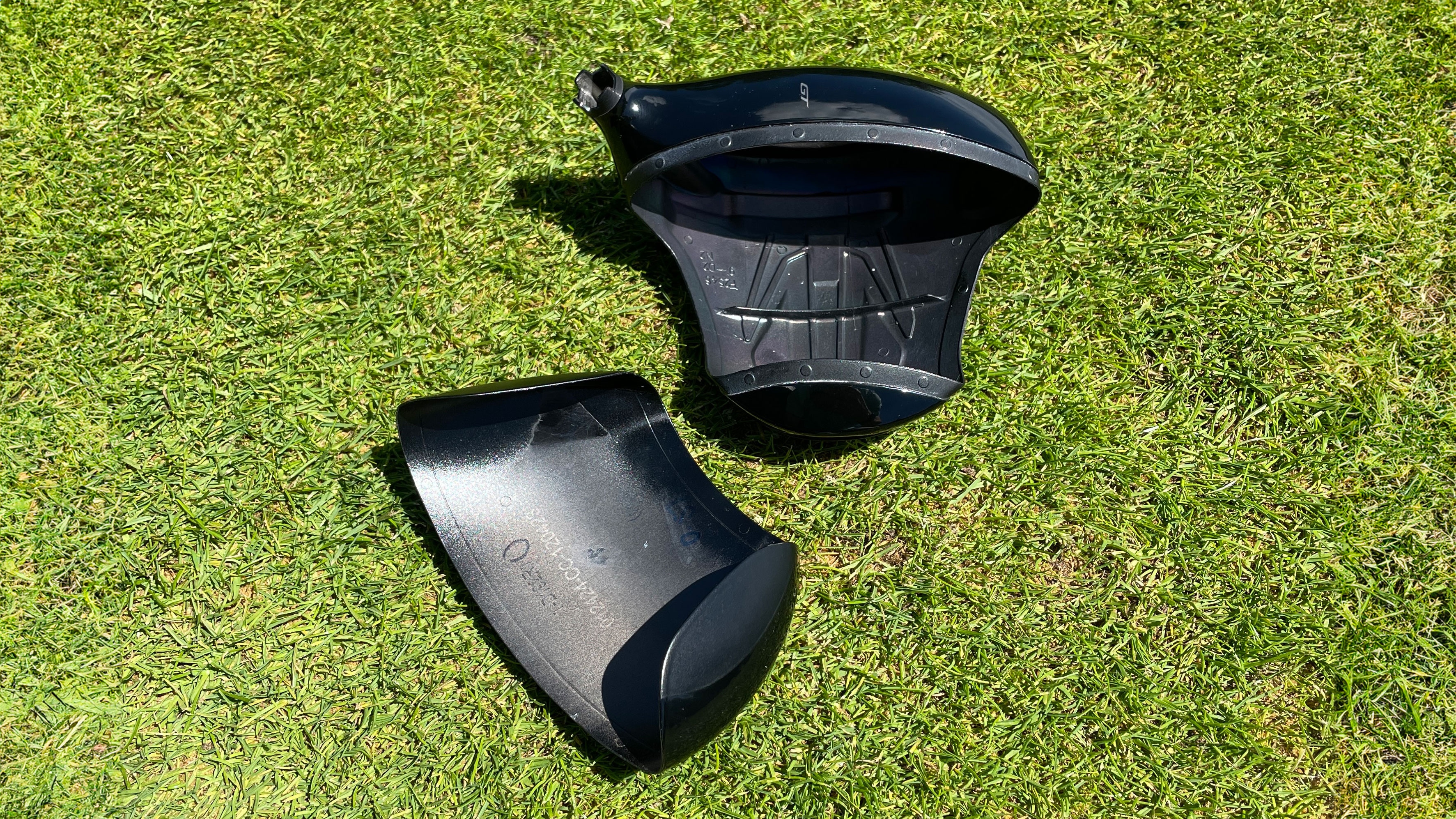
The new crown section of the GT family
I have handled a cutout section of this new crown material, and it is quite frankly baffling. When you pick it up, it is extremely lightweight and feels like you are holding a credit card both in terms of weight and flexibility, but when you tap it on a hard surface the sound is not at all what you would expect. Rather than a dull tap, you get something more metallic akin to tapping a knife on a saucepan, it is really quite peculiar, but in a good way. This material is the main contributor to a very different feel and acoustic which we will touch upon later.
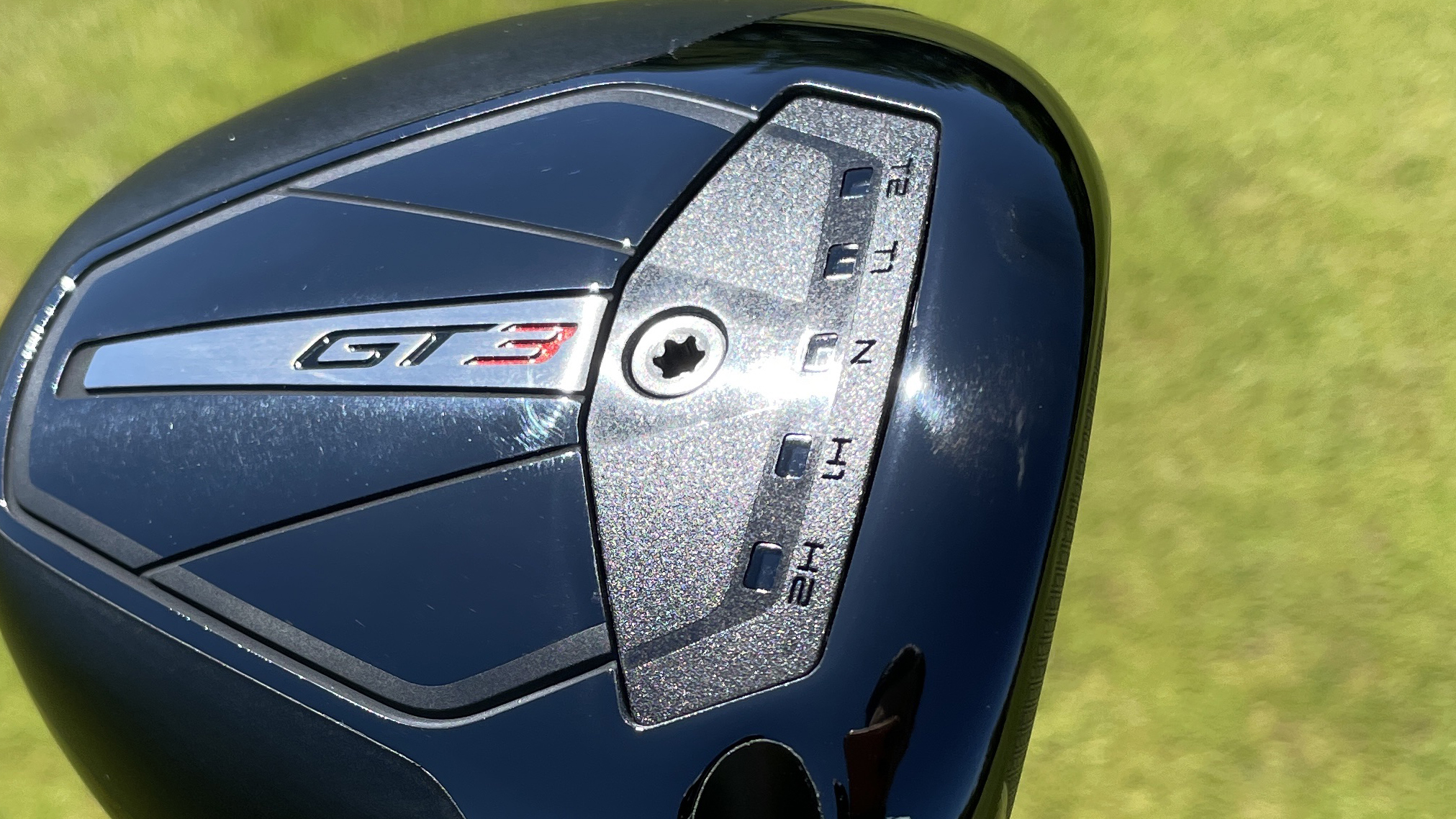
The adjustable weight track has been moved much further forward
The GT3 is the most adjustable of the new family, with a new weight track that sits much closer to the face than on its predecessor the TSR3. This allows fitters and players to match CG location to their predominant strike pattern and the benefits of doing so are amplified by the new further forward positioning.
With regard to the looks, Titleist loyalists will be thrilled to see that despite what is now very much a multi-material crown, there are no joins or banner strips down in the playing position or in fact any real indication of the new technology. Titleist has hidden this well by filling and polishing the sections where polymer meets titanium to maintain that familiar, clean Titleist visual.
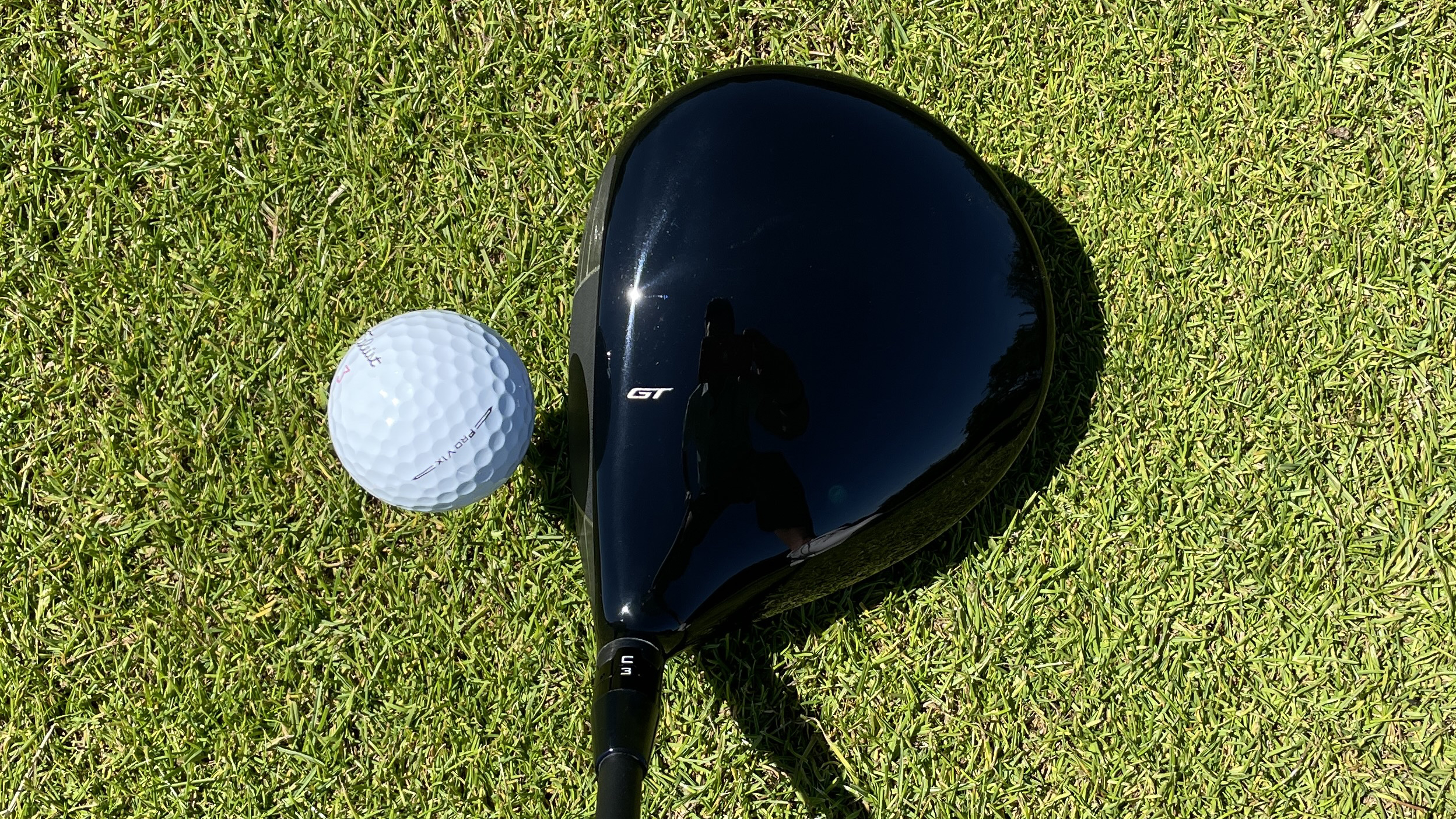
The GT3 in the playing position
From the playing position, I would have to say that the GT3 is my least favorite of the range. That is not to say it is in any way bad, looks are just subjective and I am generally more drawn towards more rounded heads such as the Mizuno ST-G or TaylorMade Qi10, or even the GT2 and GT4 of this family, whereas the GT3 is more on the ‘pear-shaped’ end of the spectrum. This shape however is a preference of many so each to their own.
Based on feedback from tour staff, Titleist has now introduced some contrast to the face of this GT range which is helpful for both lining the ball up and making it easier to see loft which is a smart move to help instill more confidence at address.
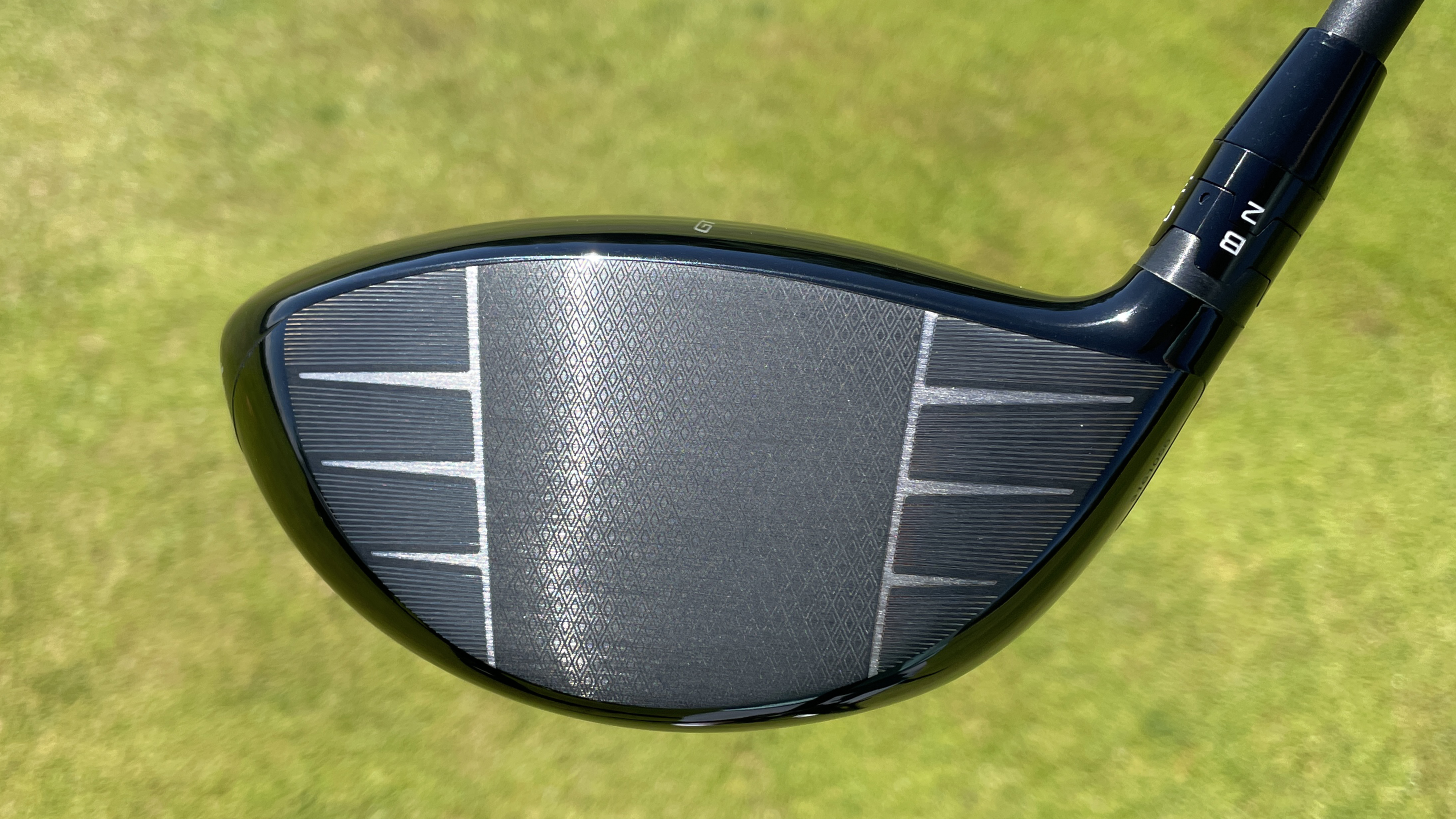
The face of the GT3
I am of the opinion that the GT range as a whole could be slightly improved from a shelf appeal point of view. I just find the sole a little underwhelming but this is hardly a big point and has precisely zero impact on the performance of what is a very impressive product.
Speaking of that performance, the GT3 delivers in abundance. I did my testing using a Trackman 4 launch monitor and as an overall package, there aren’t many drivers on the market that can deliver as much performance in as many areas as this, and I feel that is the story of the whole GT range. Yes, there are some notable improvements from previous iterations, including acoustics, forgiveness, and aerodynamics but nothing that will make you fall off your chair. However, when you add the sum of the improvements up, you have a significant leap forward.
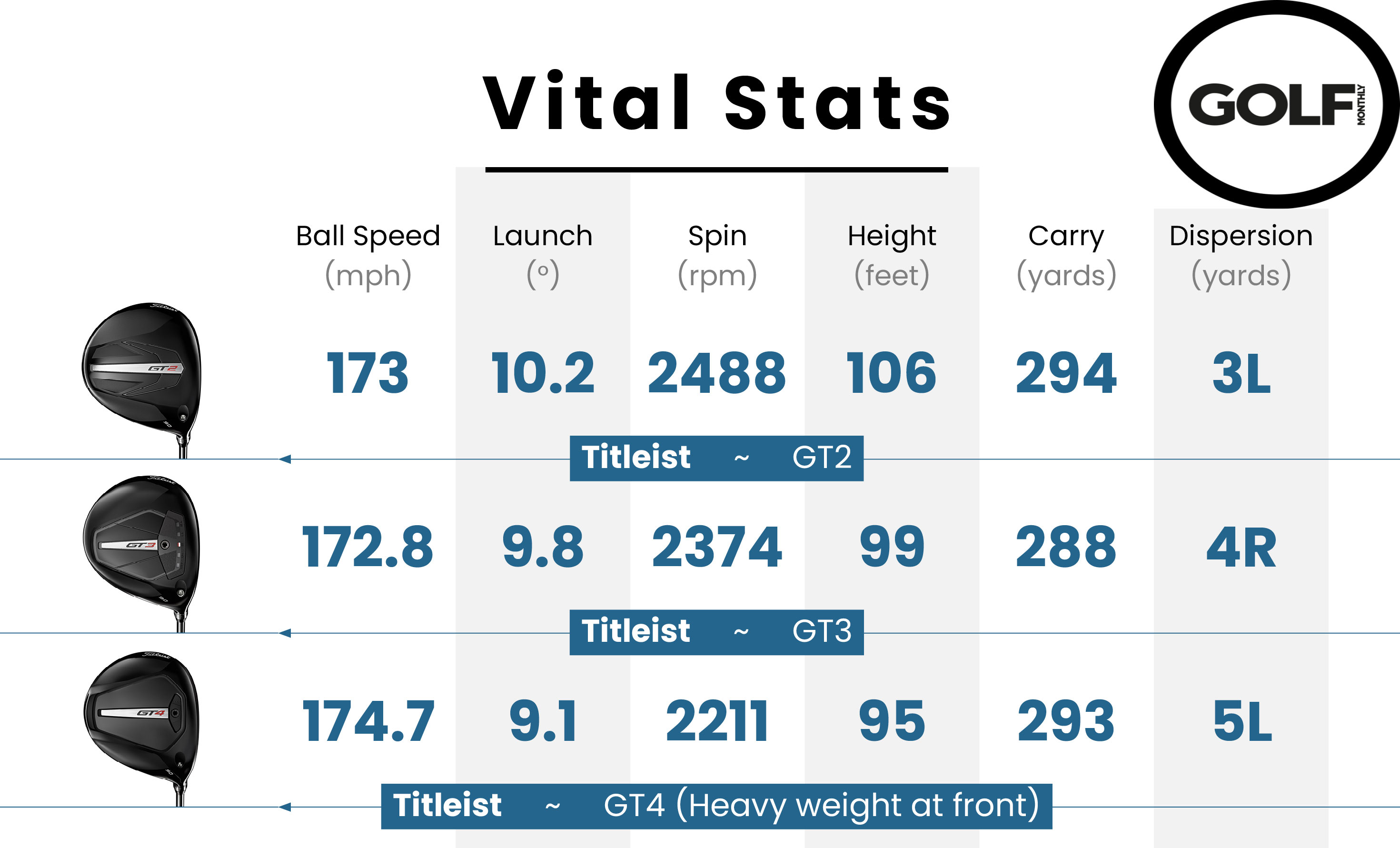
Full launch monitor data from the GT family
I found the GT3 easy to shape, and exceptionally kind to my predominant low, heel miss, retaining significantly more ball speed than anticipated.
Shortly after my first session with the GT3, I was on-site at a LIV Tour event creating ‘What’s In The Bag’ content with a number of players, and while diving into bags up and down the range, I saw an awful lot of GT3 drivers in the bags of players who aren’t paid to play them. That is always a very good sign for the quality of any driver and just re-affirmed what I felt. GT3 is a genuine move forward and in my opinion, is one of the best all-round drivers available today.
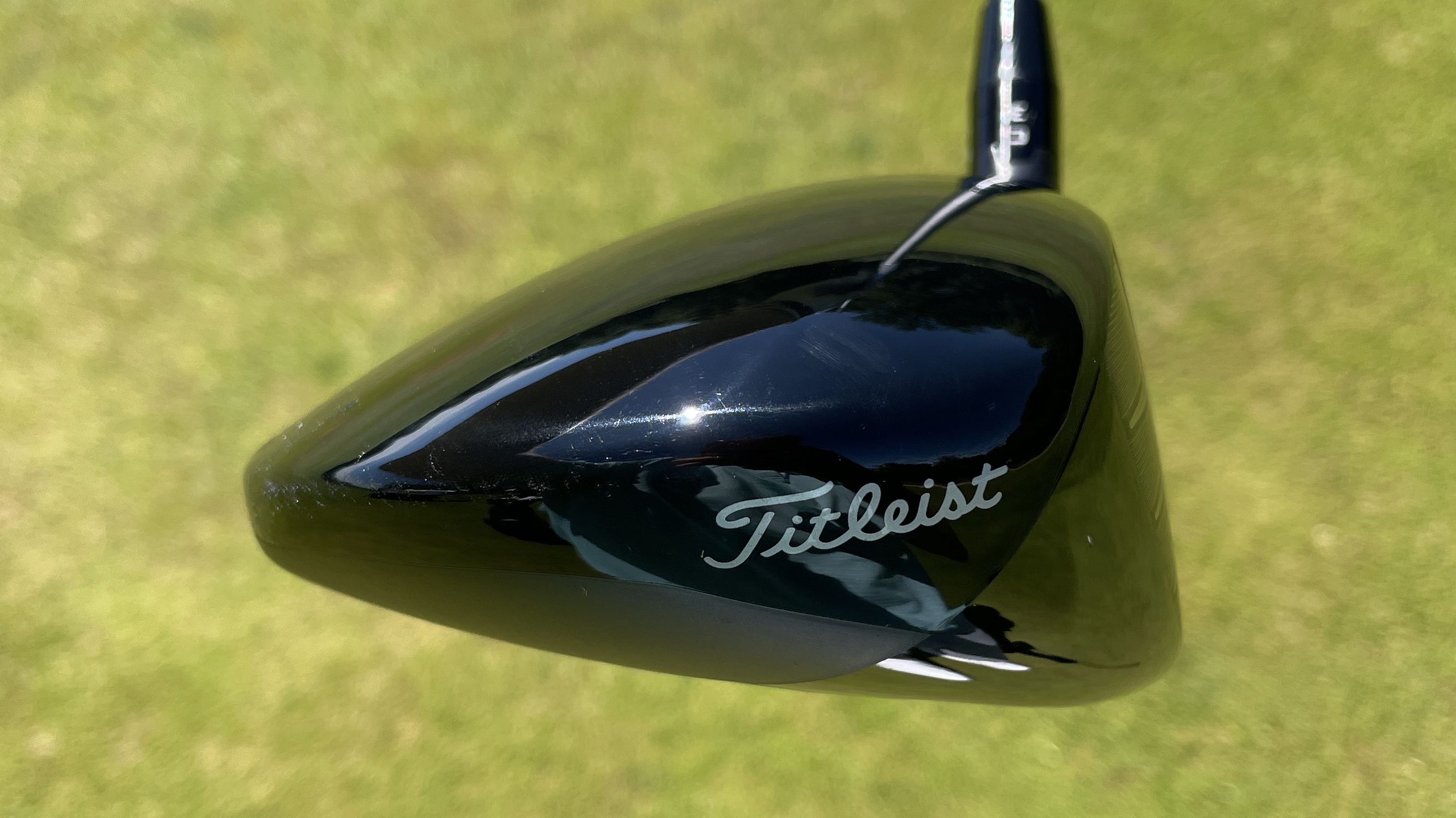
The new aerodynamic shape from the toe side
The GT3 driver is available in 8˚, 9˚, 10˚, and 11˚ in both right and left-handed options. The standard length will be 45.5” and as you would expect there are a number of custom grip, shaft, and even head weight options to dial in your preferences. However, the non-up chargeable options are the Project X Denali Red, Mitsubishi Tensei 1K Blue and Black, and the Project X Hzrdus Black 5th Gen. The RRP of the full GT range will be £579/$649.
Get the Golf Monthly Newsletter
Subscribe to the Golf Monthly newsletter to stay up to date with all the latest tour news, equipment news, reviews, head-to-heads and buyer’s guides from our team of experienced experts.

Joe has worked in the golf industry for nearly 20 years in a variety of roles. After a successful amateur career being involved in England squads at every age group, Joe completed his PGA degree qualification in 2014 as one of the top ten graduates in his training year and subsequently went on to become Head PGA Professional at Ryder Cup venue The Celtic Manor Resort. Equipment has always been a huge passion of Joe’s, and during his time at Celtic Manor, he headed up the National Fitting Centres for both Titleist and Taylormade. He’s excited to bring his knowledge of hardware to Golf Monthly in the form of equipment reviews and buying advice.
Joe lives in North Devon and still plays sporadically on the PGA West region circuit. His best round in recent years came earlier in 2023 where he managed a 9 under par 63 at Trevose GC in a Devon & Cornwall PGA Tournament.
Joe's current What's In The Bag?
Driver: Switch between TaylorMade Qi35 and Callaway Elyte TD - both with Fujikura Ventus Black 6-X
Fairway wood 1: TaylorMade BRNR Copper Mini Driver - Fujikura Ventus Black 7-X
Fairway wood 2: Callaway Apex UW 17˚- Fujikura Ventus Black 9-X
Irons: TaylorMade P7CB 3-PW with Dynamic Gold Tour Issue X100 shafts
Wedges: Callaway Opus 50, 54, and 60 degrees - Project X LS 6.0 shafts
Putter: LAB Golf Oz.1 (zero shaft lean)
Ball: TaylorMade 2024 TP5x
Grips: Golf Pride Tour Velvet 60R
Bag: Vessel Player IV Pro DXR Stand
-
 What You Get For Finishing Second At The Masters
What You Get For Finishing Second At The MastersFinishing runner-up at The Masters is sure to bring disappointment, but there are plenty of reasons for the player who misses out to be cheerful too – here are the details
By Mike Hall Published
-
 Why Does Rory McIlroy Have A Dog Headcover For His Driver?
Why Does Rory McIlroy Have A Dog Headcover For His Driver?The much-loved St. Bernard has travelled the world with McIlroy several times over
By Michael Weston Published
-
 'Genuinely Shocking, I Just Spat Out My Coffee' - Masters Fans Surprised As Traditional Sunday Pin Switched Up For Final Round
'Genuinely Shocking, I Just Spat Out My Coffee' - Masters Fans Surprised As Traditional Sunday Pin Switched Up For Final RoundThe hole locations for the final round of the Masters have been released - and they've got a lot of people talking
By Michael Weston Published